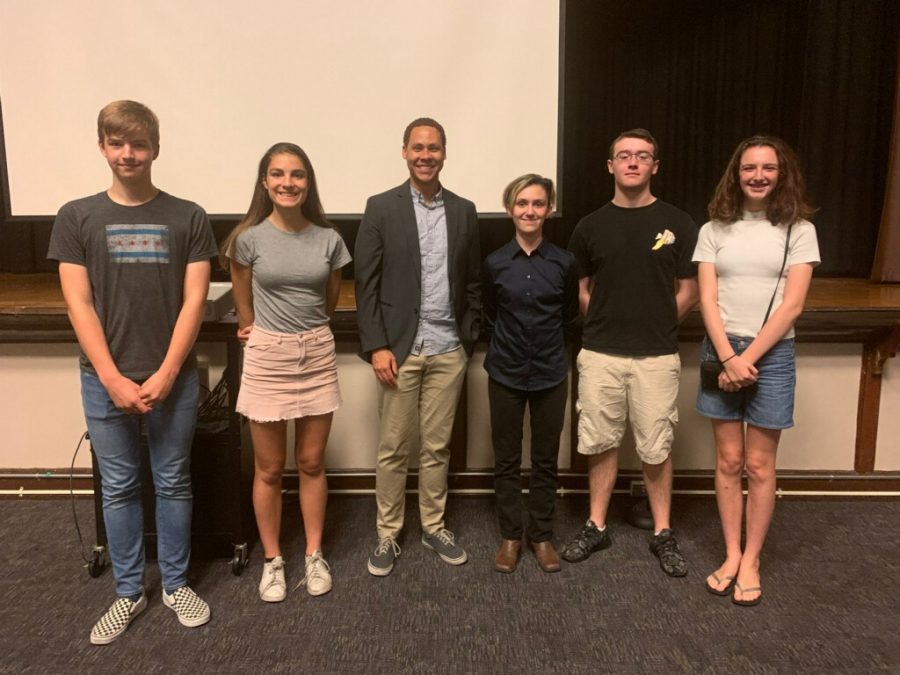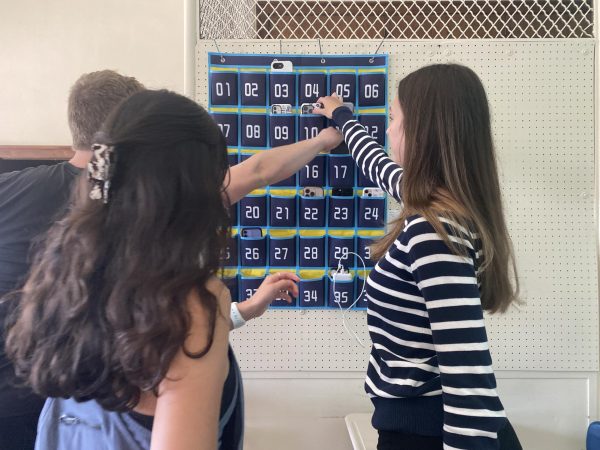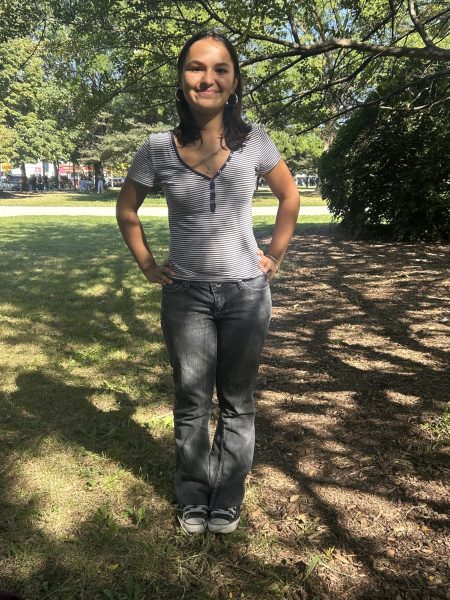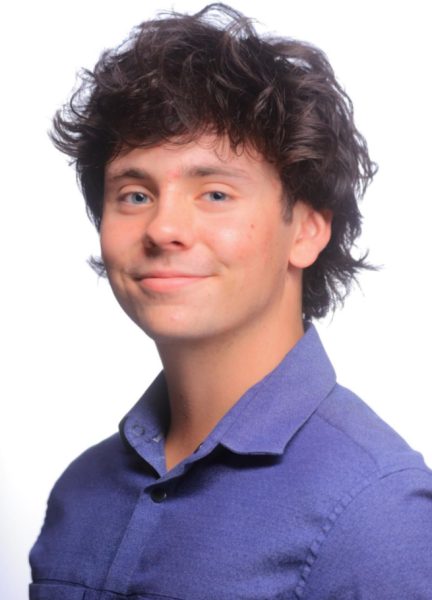Meet the neighborhood’s new alderman
After Ameya Pawar announced that he would not run for another term as alderman of the 47th ward and instead threw his hat in the ring for the role of City Treasurer, the race for his open seat quickly became one of the most hotly contested in Chicago’s latest municipal elections.
The position was filled by Matt Martin, a former representative on Pawar’s Zoning Advisory Council, who defeated Michael Negron in a runoff election last spring. The ward Martin now represents in City Council includes Lane and draws from Lincoln Square, North Center, Ravenswood, Roscoe Village and Uptown.
Raised by a single mother in Tucson, Arizona, Martin attended diverse Catholic schools through scholarships. Although he and his mother were not well off, Martin was able to attend Northwestern University, studying music and political science on scholarship. He later earned his law degree from Harvard University.
Martin’s appreciation of his high-quality education has led him to criticize the disparities in the quality of Chicago’s schools.
“We know that from birth to age three is the most important time developmentally for a child,” Martin said, “and we don’t have policies in place and systems that reflect that.”
One of Martin’s legislative priorities, according to his website, is childhood education.
“We need to do a much better job of bridging the gap between where we are and where the ideal is,” Martin said. “All children need and deserve access to high-quality neighborhood public schools, regardless of their parent’s ability to fundraise,” his website states.
Martin’s focus on equity in Chicago echoes his time spent as a civil rights lawyer at the Illinois Attorney General’s office, where he worked on issues regarding workers’ rights, healthcare, LGBTQ rights, reproductive rights, immigration and police reform.
Through his work, Martin noticed that regardless of which politician, bureaucrat or official is in power, the public rarely sees progressive policy change, he said.
“Until you change the actual structure and culture of the ways in which these various entities operate, you’re going to largely see a maintenance of the status quo,” Martin said. “We spend tremendous amounts of money on our police department, but our homicide and gun violence clearance rates remain some of the lowest in large American cities.”
Former mayor Rahm Emmanuel’s 2019 budget proposed spending over 40% of the city’s operating “corporate” budget on the police department, while the department’s homicide clearance rate trails about 20 percentage points behind other major cities, according to the Chicago Tribune.
The alderman’s belief in systemic change, especially in policing, extends beyond reform solely at the government level to the way communities think about the issue.
“Too often people’s knee jerk reaction is ‘we need more police,’ or ‘it’s the police’s fault,’” Martin said, “and it’s so much more complicated than that.”
Martin, however, retains a sense of optimism stemming from the fresh dynamics coming out of Chicago’s new City Council.
“I’m heartened because I think that if you don’t have at least a change in rhetoric, then you’re certainly not going to have a change in policies.” Martin said, “Many new members of City Council are understanding and often speaking to those truths.”
Martin is part of a slew of newly elected progressives in Chicago’s government. Chicago’s latest elections made the city’s municipal government one of the most politically left-leaning in the country.
More than a third of aldermen sit on the Progressive Reform Caucus, according to the Chicago Tribune. The election of five additional democratic socialists, totaling six altogether on City Council, was widely seen as a rebuke by Chicago voters of the long-reigning political machine.
While Martin does not identify as a Democratic Socialist, his political positions are often similar to those that do. Martin serves on the City Council’s Progressive Reform Caucus with all six Democratic Socialist aldermen.
“The Progressive Reform Caucus of the Chicago City Council is dedicated to creating a more just and equal Chicago,” reads the group’s website. “Combating all forms of discrimination, and advancing public policies that offer genuine opportunity to all Chicagoans, especially those who have been left out of our society’s prosperity.”
Younger people are moving more to the left politically, according to the New York Times. Youth-led organizations are gaining power both nationally, like the Sunrise Movement, and locally like the #NoCopAcademy campaign.
From the start of his campaign, young people have been involved in shaping his representation of the ward.
“We had folks during my campaign who were under the age of 18 who volunteered, who doorknocked and canvassed with us,” Martin recounted, “and they were incredibly effective in part because they were able to speak from the heart about what they felt passionately about.”
Student participation in Martin’s office didn’t stop there. The Alderman’s office established a Youth Council to allow teens in grades 8-12 to gain influence in the ward by advising the Alderman on legislation. Multiple students from Lane are involved in the Youth Council.
Aanika Pfister, Div. 079, joined the youth council after seeing a flyer sent out in Lane’s daily General Student News email.
“The youth council gives teenagers a chance to put forth ideas and put forth change that they would not have been able to implement,” Pfister said. “I was able to participate in an open space that was very accepting of a lot of ideas.”
Your donations directly fund the Lane Tech student journalism program—covering essential costs like website hosting and technology not supported by our school or district. Your generosity empowers our student reporters to investigate, write, and publish impactful stories that matter to our school community.
This website is more than a publishing platform—it's an archive, a research tool, and a source of truth. Every dollar helps us preserve and grow this resource so future students can learn from and build on the work being done today.
Thank you for supporting the next generation of journalists at Lane Tech College Prep!
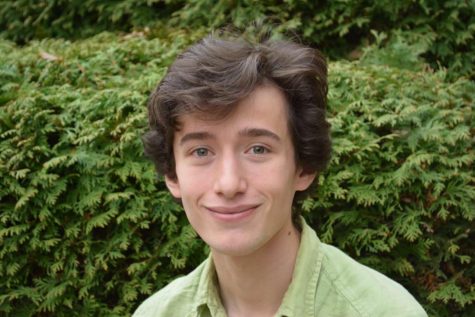
Tobias Straus is an Assistant Editor for The Warrior. His interest in journalism is a result of constantly listening to WBEZ, his local NPR station, since...

